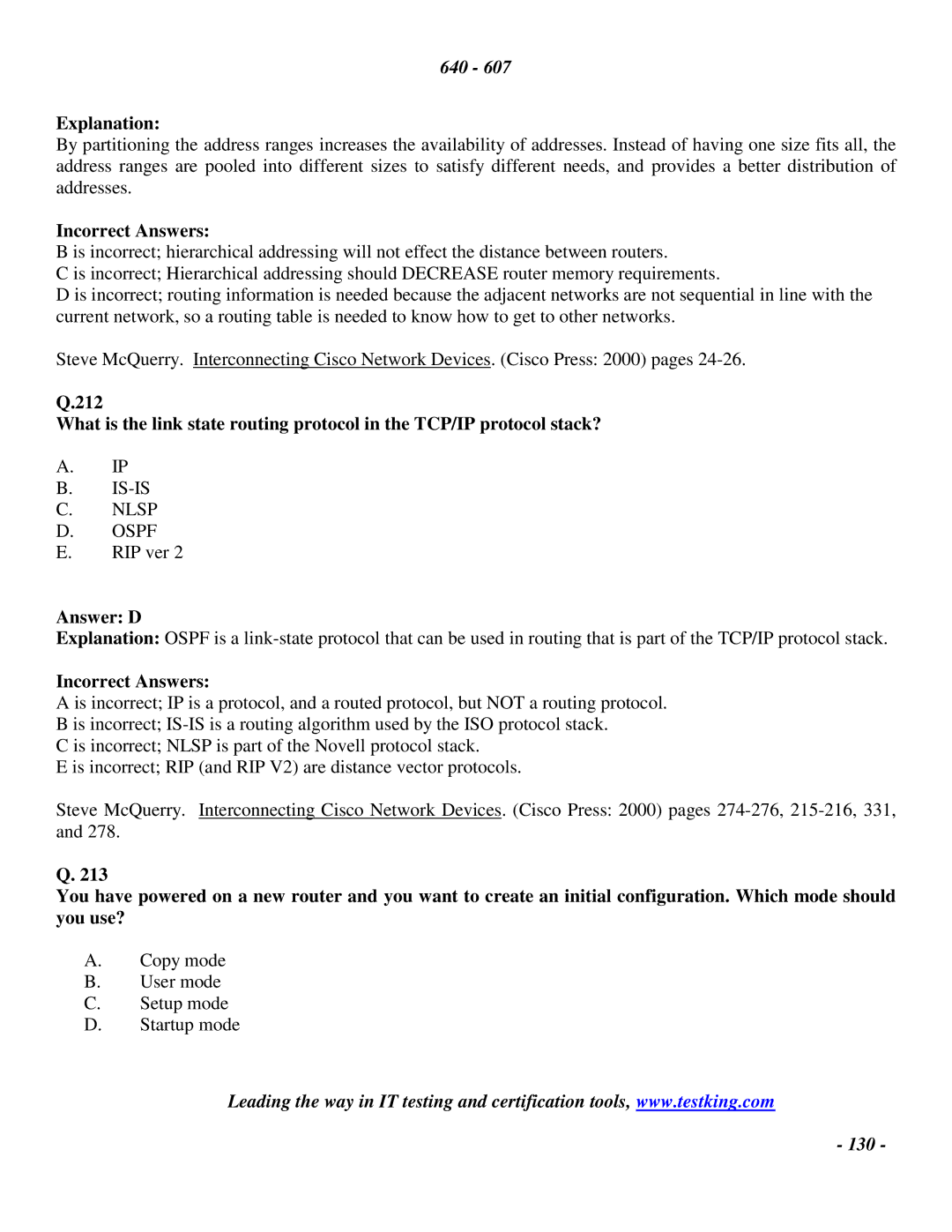640 - 607
Explanation:
By partitioning the address ranges increases the availability of addresses. Instead of having one size fits all, the address ranges are pooled into different sizes to satisfy different needs, and provides a better distribution of addresses.
Incorrect Answers:
B is incorrect; hierarchical addressing will not effect the distance between routers.
C is incorrect; Hierarchical addressing should DECREASE router memory requirements.
D is incorrect; routing information is needed because the adjacent networks are not sequential in line with the current network, so a routing table is needed to know how to get to other networks.
Steve McQuerry. Interconnecting Cisco Network Devices. (Cisco Press: 2000) pages
Q.212
What is the link state routing protocol in the TCP/IP protocol stack?
A.IP
B.
C.NLSP
D.OSPF
E.RIP ver 2
Answer: D
Explanation: OSPF is a
Incorrect Answers:
A is incorrect; IP is a protocol, and a routed protocol, but NOT a routing protocol.
B is incorrect;
C is incorrect; NLSP is part of the Novell protocol stack.
E is incorrect; RIP (and RIP V2) are distance vector protocols.
Steve McQuerry. Interconnecting Cisco Network Devices. (Cisco Press: 2000) pages
Q. 213
You have powered on a new router and you want to create an initial configuration. Which mode should you use?
A.Copy mode
B.User mode
C.Setup mode
D.Startup mode
Leading the way in IT testing and certification tools, www.testking.com
